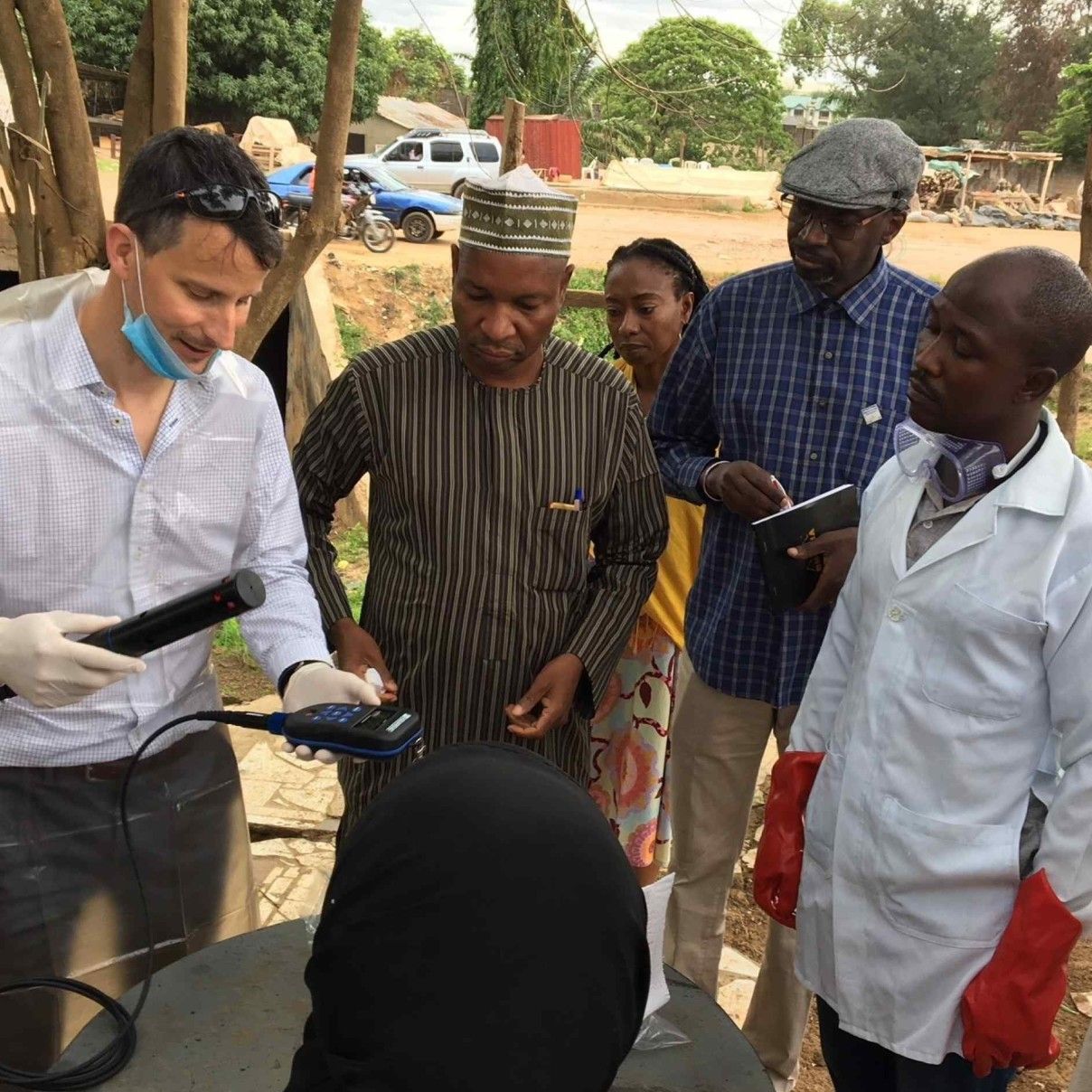The global impact of disease
- HIV, malaria, measles, diarrhoeal disease and respiratory infections are responsible for over 50% of premature deaths worldwide.
- 229 million cases of malaria worldwide in 2019.
- 32 million worldwide deaths from cancer, cardiovascular diseases, lung disease, and diabetes in 2016.
We’re combining data science and medical expertise to treat, control and prevent disease around the globe.
From pathogens with pandemic potential to illness caused by lifestyle choices, we’re tackling health threats faced by communities globally. Our expertise in data analytics is helping us discover how diseases develop and spread so we can understand how to control them. To continue to make such significant progress, we need to create specialist labs and open research centres dedicated to priority research.
Understanding what causes infectious disease outbreaks is critical. At Imperial, we’re working hard to examine population ecology and evolution of parasites. Our research also looks at the public health impact and cost effectiveness of vaccines against a whole host of infectious diseases, from yellow fever to polio.
COVID-19 has shown how important it is to manage outbreaks. Our research has been able to inform interventions, measure compliance to social distancing and understand the impact of the virus on different countries. Now, Imperial scientists are shaping how the world can best respond to future disease threats.
The rise of long-term health conditions

More sedentary lifestyles and changes in diet mean people today are more likely to suffer from long-term health conditions. And this problem isn’t just in the developed world. Countries all over the world have seen an increase in obesity, diabetes and heart disease.
A study by Imperial College London and WHO researchers revealed that more than 375 million children and young people are estimated to be overweight or obese, and virtually no progress has been made in reducing the spread of obesity worldwide in more than 15 years. To overcome this challenge, we need ways to make nutritious food more available and introduce regulations to protect children from unhealthy foods.
Creating tools and interventions
When health budgets are constrained, caring for people facing long-term issues properly is a challenge, and there is a risk that less stable healthcare systems will become overwhelmed. However, our research is providing government policymakers tools to understand the scale of the problem, as well as evidence showing which interventions will make an impact.
By carrying out large-scale studies, we’re also exploring the barriers to behaviour and lifestyle change. Your support will give our experts more opportunities to work closely with healthcare practitioners, policymakers, non-governmental organisations and patients.
With your support, we will:
Create academic posts and scholarships
To take our research to the next level, we need to bring additional expertise to priority research areas within the Jameel Institute, led by Professor Neil Ferguson.
Establish a Centre for Food and Nutrition
We want to bring together nutritional epidemiologists with medical researchers, health economists and policy experts to understand diet and health. Together, we’ll be able to influence policymaking in these areas.
Launch and fit out the Emerging Infections Laboratories
We need specialist spaces for studying viral, bacterial and fungal pathogens. Our researchers will explore antimicrobial resistance and identify emerging pathogens with pandemic potential.
Introducing the Abdul Latif Jameel Institute for Disease and Emergency Analytics
Introducing J-IDEA: Abdul Latif Jameel Institute for Disease and Emergency Analytics
Led by Professor Neil Ferguson, the Abdul Latif Jameel Institute for Disease and Emergency Analytics is dedicated to combating disease threats worldwide, and has helped to inform the response to the COVID-19 pandemic, both in the UK and internationally.
Applying their expertise in data analytics and infectious disease outbreak modelling, Professor Ferguson and his team have provided evidence on controlling the pandemic and reducing its impact.
Contact us
Become a donor or find out more about the Campaign for the School of Public Health
Rowena Morgan
Phone: +44 (0)20 7594 6743
rowena.morgan@imperial.ac.uk

